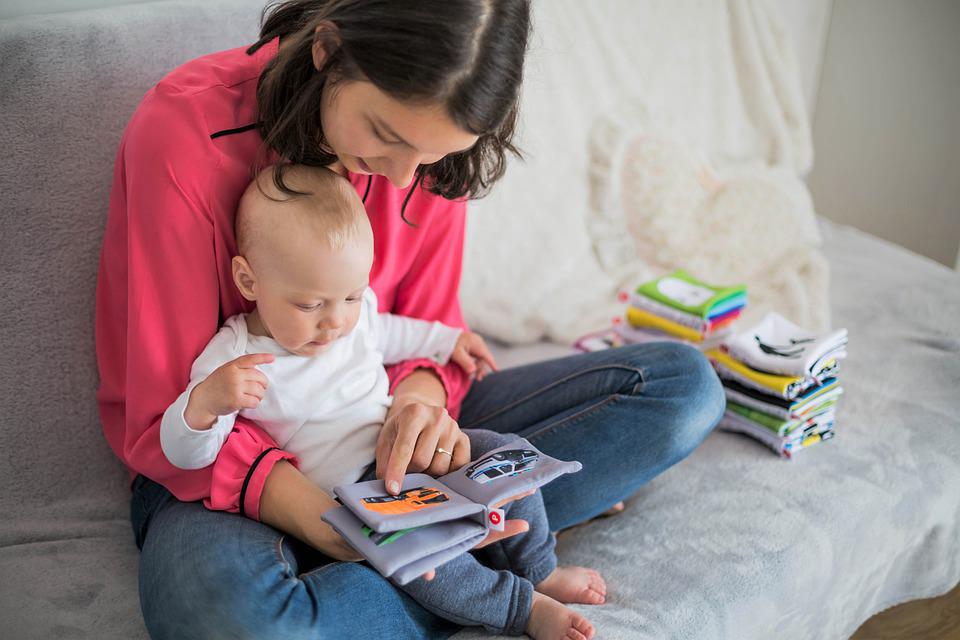There is a widespread belief that baby talk harms a child's speech and emotional development. On June 1, International Children's Day, we decided to check if this is really true.
Many forums, dedicated parenthood, sites children's educational institutions and Media they write about the dangers of babying. They note: this manner leads to the fact that the child begins to speak later and masters speech worse. In particular, the Zabota.pro portal with a link to an unnamed pediatrician writes, that “distorted pronunciation is fixed in children’s memory for a long time, and as a result becomes the norm. It’s so difficult to relearn later.” A similar point of view can be found in website, dedicated to speech therapy and defectology. They explain that the child “forms an incorrect idea of his native language, incorrect pronunciation becomes the norm for him, and not because he has any problems with diction, but because he simply does not know how to speak.” Websites about raising children also warn: “The child will have difficulty mastering writing, since the basis of this skill is a well-developed phonemic awareness.” Pay attention attention also to the psychological aspect: supposedly such speech can harm the emotional state of the child, form complexes, and make him infantile for life.
Baby talk, or baby talk, is a special type speech used for communication between an adult and a child, which is characterized by simplified or distorted pronunciation of words, as well as the use of lightweight grammatical structures. In everyday life, baby talk can be addressed not only to babies; sometimes pet owners also resort to it. Examples of baby current leads professor, doctor of philological sciences Maxim Krongauz: “Look, what a lalya”, “Who is this little one of us?”, “Let’s go for a walk with the gafa.”
A special type of speech addressed to children exists in almost all languages. Exception - exotic cultures of small peoples, for example, the Pirahana language of the Amazonian aborigines. In English terminology Baby talk is called speech addressed to children, as well as maternal or parental language. In addition to the distortion of sounds and the use of simpler grammatical structures, it is characterized by a special structure offers, more height and range of voice, less fast pace and additional rhythmicity of pronunciation, in contrast to speech addressed to an adult. After analyzing recordings of conversations between volunteers and young children, scientists identified, that the pronunciation of most vowels also changes, while consonant sounds sound almost the same. Patricia Cool, co-director of the Institute for Learning and Cognitive Sciences, University of Washington, summarizes: “Such speech has three main characteristics: it is almost an octave higher, the intonation is more pronounced; the lows are lower, and the highs are higher in timbre; its tempo is slower, with longer pauses.” That is, baby talk is a special type of speech with its own phonetic, grammatical and stylistic features.
Studying speech addressed to children is interesting linguists, psychologists And specialists on child development. One of the most significant research in this area was carried out at the University of Edinburgh. Linguists analyzed speech patterns addressed to infants and identified those in which parents often used:
- diminutive forms of words ending in y (a characteristic feature of the English-speaking baby current), for example tummy (“tummy”), mummy (“mommy”) and doggy (“doggy”);
- repeating sounds, for example choo-choo ("choo-choo") and night-night ("sleep-noki");
- onomatopoeic words - woof (“guff”) and splash (“squish” / “slurp” / “slap”).
The researchers assessed these children's vocabulary scores at ages 9, 15, and 21 months and compared them to average scores. It turned out that children who more often heard diminutive constructions and words with repeated sounds had a larger vocabulary, and it consisted mainly of full words, rather than their children's analogues. The speech of those whose loved ones used only onomatopoeia did not differ in the number of words mastered from the speech of children with whom there were no variants of baby talk.

A similar design launched in 2018 study with the participation of a control group. It involves 77 families with babies who were six months old at the beginning of the experiment. Parents were provided with sound recording devices that record everything the child hears and says. Scientists monitor families' communication strategies and provide individualized recommendations to those in the intervention group. The control group receives no feedback. As interim results, the researchers noted that by 14 months of age, infants in the intervention group babbled 13% more actively and also knew more words than children from the control group (100 words versus 60). Study continues and now. At the age of three, the children's brains were scanned using an MRI machine to find out what permanent changes had occurred in the white and gray matter. The results of this stage have not yet been published.
Another group of scientists from the University of Connecticut analyzed thousands of 30-second snippets of conversations between parents and their babies, and then measured the vocabulary of these children at age two. It turned out that those whose parents coddled more learned an average of 433 words, while those whose families hardly used baby talk learned an average of only 169 words. “Children who listened to a lot of child-directed talk spoke more than children who listened to more adult speech,” says Nyran Ramirez-Esparza, co-author of the study.
According to data American Council on Science and Health, infants themselves are more receptive, that is, they show more interest, in precisely this type of speech. Moreover, listening to baby talk, the baby stays longer concentrates and on other stimuli, in particular visual ones. The preferences of the infants themselves are most clearly demonstrated by an experiment in the mid-20th century with a boy named Paul. A seven-month-old baby sits on his mother’s lap in a confined space and hears either a baby talk addressed to him on one side, or an adult speech on the other. The child turns his head in the direction of each of the voices until he finally gives preference to the baby current.
Later experiments to analyze how babies themselves perceive baby talk were conducted at the University of Washington. Scientists have found that when children listen to such speech, not only the area of the cerebral cortex responsible for hearing is active, but also those areas that are subsequently responsible for speech. “Child-centered speech is a social catalyst for language. She forces children not only to listen, but also to speak,” fails result of the leading specialist of the study, Patricia Cool.
This hypothesis also confirms study 2015, comparing infants' responses to artificially generated sounds simulating speech addressed to an adult and to a child. In addition to the fact that infant speech held children's attention 40% longer, it also more often caused the observed smiles and lip movements characteristic of subsequent pronunciation of sounds. Researchers have suggested that listening to baby talk helps initiate a learning process that leads to speech acquisition. “It could be some quality of sound that just gets their attention,” speaks study co-author Linda Polka, “or maybe they are actually interested in this particular type of sound because they start to focus on their own ability to make sounds, meaning they value it as a sound they could make themselves.”
One more thing is interesting observation scientists: mothers, when communicating with their children, pronounce sounds less clearly. However, their study did not demonstrate that such children master speech worse, but quite the opposite. “The fact that infants can learn to speak from less clear speech is in itself remarkable. This can be called a special genius in learning a language,” speaks study co-author Andrew Martin.
And although a significant part of the research was carried out in English-speaking countries, that is, only English baby talk was studied, there is data on other languages. For example, scientists noted similarities between changes in syllable pronunciation when using speech addressed to infants among speakers of French, Italian, German, Japanese, British and American English. Moreover, the experiment showedthat children aged seven months react equally to baby talk both in their native language and in a foreign language.
Baby talk is not unique to humans. Birds too change its own sound reproduction to teach chicks to sing. In turn, with this skill it is faster mastered those chicks who listened to simplified singing from adult birds than those who listened to the correct singing in the recording. That is, baby current can be considered a mechanism inherent in nature.
From a psychological point of view, baby talk is also useful. It helps to create an emotionally warm and comfortable environment for the child. “This is what allows us to establish contact with the child and calm him down. This is how we communicate that everything is fine, he is welcome here and it’s safe here,” sure perinatal psychologist Elena Patrikeeva.
Thus, cooing with children, using children’s words, and simplifying speech, making it more adapted for the child, is not only not harmful, but also beneficial for the development of the baby. The use of baby current by adults helps children learn language faster and gain a larger vocabulary, and also improves emotional contact between parents and children.

Not true
Read on the topic:
- “Chenichny Gogurt”: by repeating children’s speech mistakes, are we harming their development?
- “Who is this single guy here?” Linguist Maxim Krongauz - about why we lisp with children
If you find a spelling or grammatical error, please let us know by highlighting the error text and clicking Ctrl+Enter.






